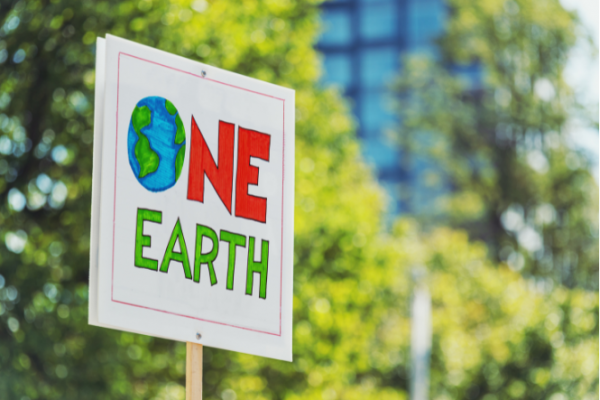Below are some ways you can help manage your feelings. They may not work for everyone and if you are still feeling unsure about how to deal with your feelings, speak to a friend, a family member or your GP.
Know you are not alone
You are not alone in how you are feeling. Your feelings matter and they make sense. It shows that you care about others and the world around you.
Talk about it
Talking to people can be reassuring and can improve your self-esteem and your confidence. Talk with friends and family about your concerns and encourage them to take climate action. If you’re feeling overwhelmed, they may advise you speak with your GP or a counsellor.
This guide from Climate Outreach on how to have a climate change conversation(external link) can help with these conversations. Read stories of progress and hope from Future Crunch(external link) and The Daily Crunch(external link).
Keep active
Physical activity can help your mood. Activities could include going for a walk, cycling, running or yoga. Join a friend or a local group to keep active or incorporate physical activity in your travel.
Switch off regularly
It’s easy to keep reading about the climate crisis and to hear about it. It can even be seen around you through flooding or fires. Try to focus your mind on other things you enjoy. It may help to write down all of your worries before you try to switch off. It can be hard to empty your mind so practice switching off regularly.
Book an appointment with your local Member of Parliament
Tell them about your concerns for the future and encourage them to take action.
Choose organisations that are more climate friendly
This process works better collectively. If you see groups, educational facilities or businesses that are doing things in a non-climate friendly manner, then you can use your power as a consumer and politely tell them why this offends you.
When you are buying something consider if you really need it and if you do, try ethical purchases.
Build your confidence by taking environmental actions
Make climate change a factor in the decisions you make around what you eat, how you travel, and what you buy. But remember that everyday activity can be climate damaging in some way so be kind on yourself when examining your activities and their effects. Some changes could include:
- eating a plant based diet with healthy portions and no waste. There are some great meat-free substitutes out there which are similar in cost and texture to meat.
- set up a compost bin for any food waste. Some composts can even break down carbohydrates!
- feedback on submissions from places like the council. Your feedback matters.
- switching from using a car to a bike, walking or public transport especially for those short journeys.
Reach out to other likeminded people or groups locally. Many of those people or groups will be working on solutions that will make the world happier, healthier and safer. You can join them in taking action or just doing something differently. Examples of groups include:
- pest free wildlife groups
- planting
- walking
- neighbourhood clean ups
- community waste cooking groups.

Image credit: Canva
You can also try to see if there is anything you could do in your workplace or place of education eg, recycling, encouraging non-car methods of travelling or joining support groups.
Spend time outdoors
Being around nature can help your mood and your spiritual health (wairua). It is a reminder that you are connected with the world around you. Take a walk, smell the air, hear the sounds around you and see the life growing on the trees and in the birds. If you’re spending time in nature with your family and friends, well that’s even better. Read more about letting nature in to strengthen your wellbeing.
Sleep
While anxiety can affect your sleep, not getting enough sleep can also contribute to making you more anxious. Make good sleep a priority. Follow our sleep tips to help with this.
Apps reviewed by Healthify
You may find it useful to look at some Anxiety apps and Meditation and mindfulness apps.








